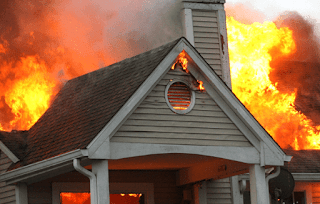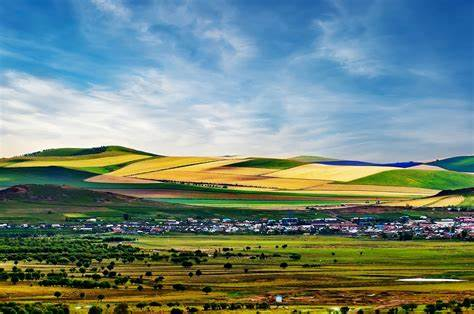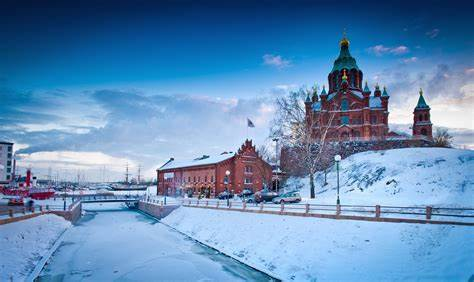Introduction:
Fire outbreaks can cause significant damage to property and even cost lives. Fortunately, there are many steps you can take to prevent a fire from happening. In this blog , we will discuss many ways to prevent a fire outbreak.
Install smoke detectors: Smoke detectors are essential for early detection of a fire. Make sure they are installed in every room, and test them regularly to ensure they are working correctly.
Have fire extinguishers: Make sure you have fire extinguishers readily available in case of a small fire. Learn how to use them and keep them maintained and updated.
Avoid overloading electrical outlets: Do not overload electrical outlets, and do not use extension cords as permanent solutions.
Have a fire escape plan: Develop a fire escape plan and practice it regularly with your family members.
Keep flammable items away from heat sources: Keep flammable items such as curtains, papers, and furniture away from heat sources like space heaters, stoves, and candles.
Don't leave cooking unattended: Always stay in the kitchen when cooking and avoid leaving the stove unattended.
Use candles safely: Use candles in appropriate holders and keep them away from flammable materials. Never leave a lit candle unattended.
Keep a safe distance from heaters: Keep a safe distance from space heaters, and make sure they are on stable surfaces.
Store flammable liquids safely: Store flammable liquids like gasoline and propane in safe, well-ventilated areas, away from heat sources.
Keep a fire blanket: Fire blankets are useful in smothering small fires. Keep them readily available in your home.
Install lightning protectors: Install lightning protectors to protect your electrical system from power surges caused by lightning strikes.
Check your electrical system regularly: Have a professional electrician check your electrical system regularly for safety.
Avoid smoking indoors: Avoid smoking indoors, and make sure cigarettes are properly extinguished before disposing of them.
Have your chimney inspected: Have your chimney inspected and cleaned regularly to prevent fires caused by creosote buildup.
Keep your lawn trimmed: Keep your lawn trimmed to prevent dry grass from catching fire.
Educate your family members: Educate your family members about fire safety, including how to use a fire extinguisher and how to escape from a fire.
Have a well-maintained fire alarm system: Have a well-maintained fire alarm
Preventative Measures:
Install smoke detectors in every room and test them regularly.
Keep flammable materials away from heat sources and open flames.
Store chemicals and combustibles in a cool, dry, and well-ventilated area.
Use electrical equipment that has been approved by a recognized testing laboratory.
Never leave cooking unattended, especially on the stove or in the oven.
Keep a fire extinguisher handy and learn how to use it properly.
Have your heating system, chimney, and appliances inspected and serviced regularly.
Keep matches, lighters, and candles out of reach of children.
Never smoke indoors or near flammable materials.
Use caution when handling hot liquids or food.
Building and Property Maintenance:
Clear gutters and roofs of debris that could fuel a fire.
Repair or replace any frayed electrical cords or outlets.
Install fire-resistant roofing materials.
Make sure all exits are clearly marked and free from obstructions.
Keep emergency phone numbers and instructions posted near exits.
Install sprinkler systems in high-risk areas.
Keep a clear space around heaters and furnaces.
Insulate exposed pipes and heating ducts.
Emergency Preparedness:
Have an emergency plan in place and practice it regularly.
Designate a meeting place outside of the building.
Know how to shut off utilities such as gas, water, and electricity.
Have a first aid kit and fire escape ladder on hand.
Keep important documents in a fireproof safe.
Develop a system for notifying employees, customers, and emergency responders.
Stay low to the ground if there is smoke in the air.
If trapped, try to seal off the room with towels or clothing to prevent smoke from entering.
If you catch on fire, stop, drop, and roll.
Call 911 as soon as possible.
Wait for firefighters outside of the building.
Do not attempt to re-enter the building until it has been deemed safe by authorities.
MorePreventative Measures:
Avoid overloading electrical outlets or using extension cords as a permanent solution.
Keep flammable materials, such as curtains or decorations, away from heaters or other heat sources.
Use caution when storing and disposing of flammable liquids, such as gasoline or propane.
Check for and repair any leaks in gas lines or appliances.
Keep fireplaces and chimneys clean and free from debris.
Use caution when using space heaters, and never leave them unattended.
Consider installing a lightning protection system to prevent lightning strikes from causing fires.
Building and Property Maintenance:
Install tempered glass or safety film on windows to prevent glass from shattering and spreading fires.
Install fire-resistant doors and walls in high-risk areas.
Install fire-resistant insulation in walls and attics.
Install an automatic fire suppression system, such as a sprinkler system.
Install fire-resistant landscaping, such as stone or gravel, around your property to create a fire break.
Install smoke curtains or barriers to help contain fires in larger spaces.
Regularly clean and maintain kitchen exhaust hoods and ducts to prevent grease buildup.
Emergency Preparedness:
Develop a system for evacuating pets safely in case of a fire.
Have a designated person in charge of calling 911 and coordinating with emergency responders.
Train employees or family members on how to use fire extinguishers and other fire safety equipment.
Create a plan for evacuating people with disabilities or mobility issues.
Keep a flashlight and whistle near your bed in case of a nighttime emergency.
Consider purchasing a portable fire escape ladder for multi-story buildings.
Keep a supply of non-perishable food and water in case of emergency.
Teach children what to do in case of a fire, including how to dial 911 and how to escape through a window.
Conclusion:
By implementing these additional tips, you can further increase your preparedness and reduce the risk of fire outbreaks. Remember, fire safety is an ongoing effort and requires everyone to be proactive in preventing fires and prepared in case of an emergency. Stay vigilant and stay safe!






















